Updated: Jul 03, 2023 By: Dessign Team
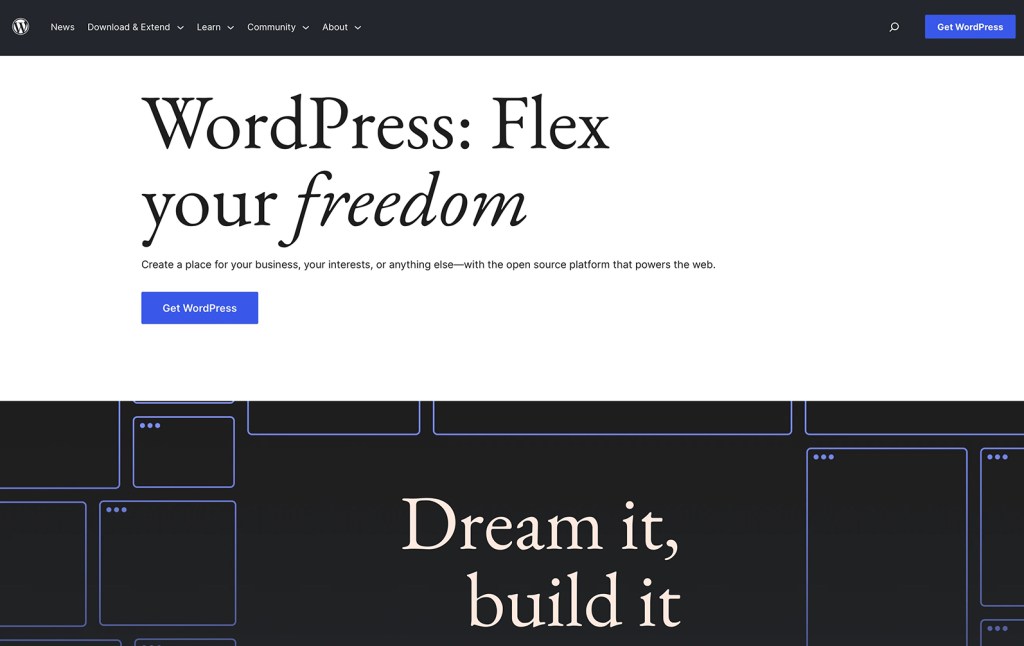
What is WordPress
As someone who's just starting their blogging journey, I was curious about WordPress and its features. In this segment, we'll delve into what WordPress is and what makes it such a popular platform.
At its core, WordPress is a website creation tool and content management system that offers a hassle-free website-building experience. By exploring WordPress as a content management system, we'll show you why it is the go-to choice for web developers and bloggers alike. We'll also be discussing the advantages of WordPress, including the extensive customization options it offers and its user-friendly interface.
Definition of WordPress
WordPress is a widely used open-source content management system (CMS) that facilitates the creation and management of websites, blogs, or any other web-based content. WordPress is suitable for anyone who wants to create and maintain a website regardless of their technical skill level. It provides a user-friendly interface and numerous functionalities that make it easy to customize the look and feel of a website or blog.
WordPress has several benefits as a CMS.
- it is free to use and install on any web server.
- it is highly customizable through themes and plugins which allow users to change its appearance and add functions.
- Finally, it enjoys active community support which ensures that its codes are regularly updated and secure.
There are various types of WordPress websites including business sites, eCommerce stores, blogs, portfolios, resumes, forums, social networks, and membership sites. These websites can be created using two versions of WordPress: self-hosted WP (WordPress.org) or paid WP service (WordPress.com). Self-hosted WP gives users full ownership and control over their websites while paid WP offers less flexibility but requires no technical upkeep.
The history of WordPress dates back to 2003 when Mike Little and Matt Mullenweg started developing code for a forked version of b2/cafelog blogging software. Since then, WordPress has gone through several major releases with significant improvements in features such as security patches, bug fixes, increased speed, better user experience among others.
It is worth noting that both individuals and small businesses use WordPress for creating websites since it does not require any specific technical knowledge. Big brands such as Whitehouse.gov, Microsoft among others also use this platform due to its capability to handle complex websites.
WordPress: When managing content gets easier than choosing a Netflix show.
WordPress as a content management system
WordPress is a highly versatile platform that can be used for creating and managing various types of websites. It is primarily known as a content management system, allowing easy creation, editing, and publishing of digital content such as text, images, videos, and audio. By using WordPress as a content management system, website owners have access to an intuitive interface for all their digital assets. With its powerful functionalities, it supports the needs of various websites including blogs, portfolios, eCommerce stores and even social networks.
Furthermore, WordPress offers flexible customization options that make it easy to tailor your site according to your preferences without needing to have coding skills. This allows you to modify the look and feel of your website while retaining complete control over the design elements. Additionally, with thousands of plugins readily available on WordPress's open-source platform users can enhance their website's functionality to meet specific needs with ease.
To fully leverage the power of WordPress as a content management system requires having a basic understanding of HTML , CSS and JavaScript for formatting purposes. This improves search engine visibility and readability by humans too. Once you get started with WordPress (self-hosted option) which provides more flexibility than using paid WP services like WordPress.com; you'll likely never look back at other CMS solutions again.
Therefore it is important for businesses or bloggers looking to create or build an online presence leverage this powerful software due to its immense benefits in terms of usability and ability deliver quality user experience to online visitors, in order not miss out on vital opportunities in today's digital world where web presence has become imperative for reaching audiences globally.
If you want a website that's easy to use and easy on the wallet, WordPress is the answer.
Benefits of using WordPress
Using WordPress – Why It Is Advantageous:
WordPress offers numerous advantages to its users. Here's a glimpse of some of them:
- Easy to use: WordPress is easy to use even for beginners with its intuitive interface and helpful community.
- Customizable: WordPress offers a wide array of themes and plugins, making it highly customizable as per the specific needs of individual users.
- Cost-effective: Unlike many other content management systems, using WordPress is free and open-source with a variety of free themes, plugins, templates, and hosting options available for the site owners.
It is not just these features that make using WordPress advantageous. With such an extensive amount of resources for customization and the ability to scale up in terms of functionality when needed, this CMS offers everything one might need to establish a high-quality website.
As thus, if you are looking for an all-in-one solution that is relatively easy to use, cost-effective in nature, and where you don't have to be an expert web designer or developer to run your website smoothly but most importantly customized accordingly- you cannot go wrong with using WordPress!
Whether you need a business site, an eCommerce store, a blog, or even a social network, there's a WordPress website type just for you.
WordPress website types
As someone new to creating a website, it's essential to understand the different types of websites you can build with WordPress. With WordPress, you can create a variety of websites for both personal and business purposes. In this part, we will explore the various types of websites you can create using WordPress, from business websites to forums, membership sites, and everything in between. By the end, you'll have a better understanding of what your options are and what type of website will work best for your particular needs.
Business websites
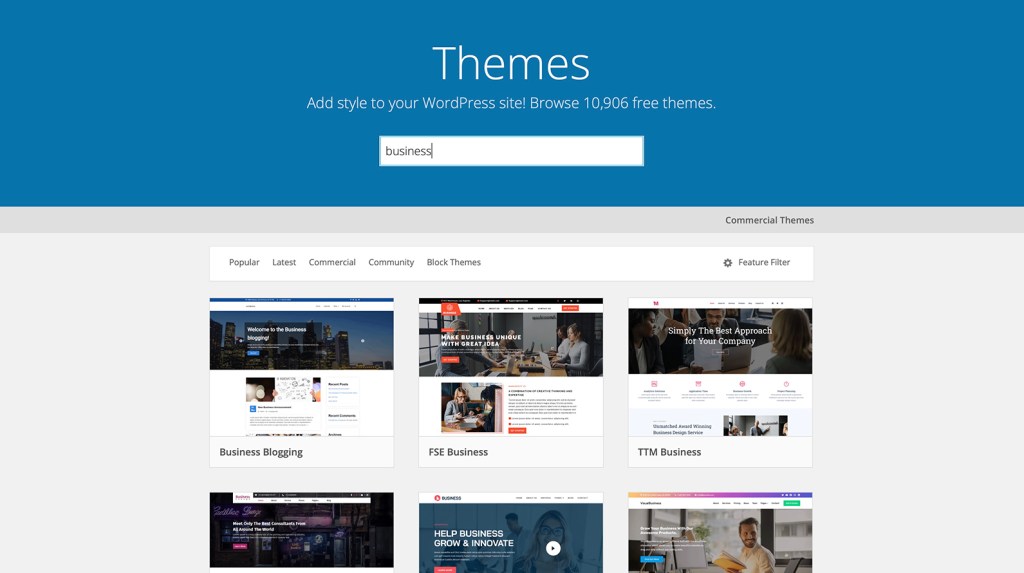
Companies need a website to have an online presence. Business websites on WordPress provide the necessary infrastructure and support to convey your brand message and scope of services offered. With easy content management accessible from any device, it's a valuable tool for enhancing engagement with clients.
WordPress provides multiple customizable templates that allow companies to choose the style, layout, and typography of their site design. Typography styles, particularly font sizes, should be large enough, without limiting access to unstructured white space through mobile responsive site catering needs of potential clients.
Unique details on business websites include integration with professional email marketing providers such as MailChimp or Constant Contact. The website also works efficiently in SEO optimization using page titles, meta descriptions, image alt tags, and structured data markup.
For better engagement with first-time visitors across varied channels social media links on landing page helps improve brand visibility by showcasing user-generated reviews from businesses they have served – depicting their strength in delivering the right solutions for client requirements.
Want to sell online? Let WordPress be your virtual cash register with eCommerce stores.
eCommerce or WooCommerce stores
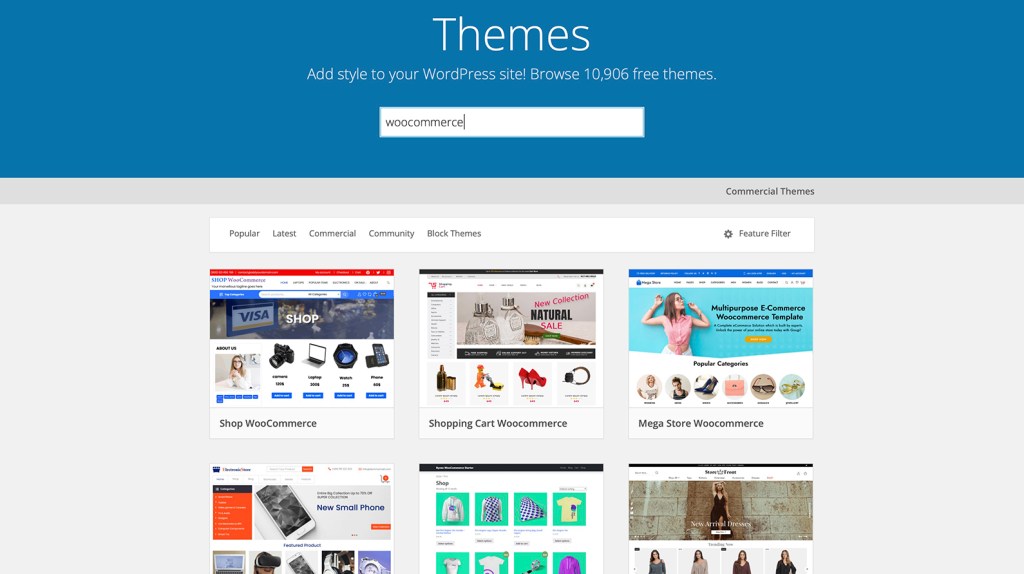
For online businesses, ‘eCommerce stores' can be the perfect platform for selling goods or services. WordPress offers myriad of features that make it perfect for creating an eCommerce store that is both functional and aesthetically pleasing.
- eCommerce websites on WordPress can be customized easily as per the business needs.
- WordPress WooCommerce plugins including WooCommerce, add advanced eCommerce features to any website.
- The platform offers plenty of well-designed templates perfect for any eCommerce stores – large or small.
- WordPress lets owners have multiple payment options like PayPal, credit cards, and cash on delivery.
Creating a successful eCommerce store requires a great deal of attention. With WordPress, online vendors can streamline their e-commerce development and management process with ease.
Online business owners should customize product pages to attract customers with clear descriptions and beautiful images. They should also focus on speed optimization and earn trust by offering free shipping or easy return policies.
Get your thoughts out there and your WordPress blog up and running with ease.
Blogs
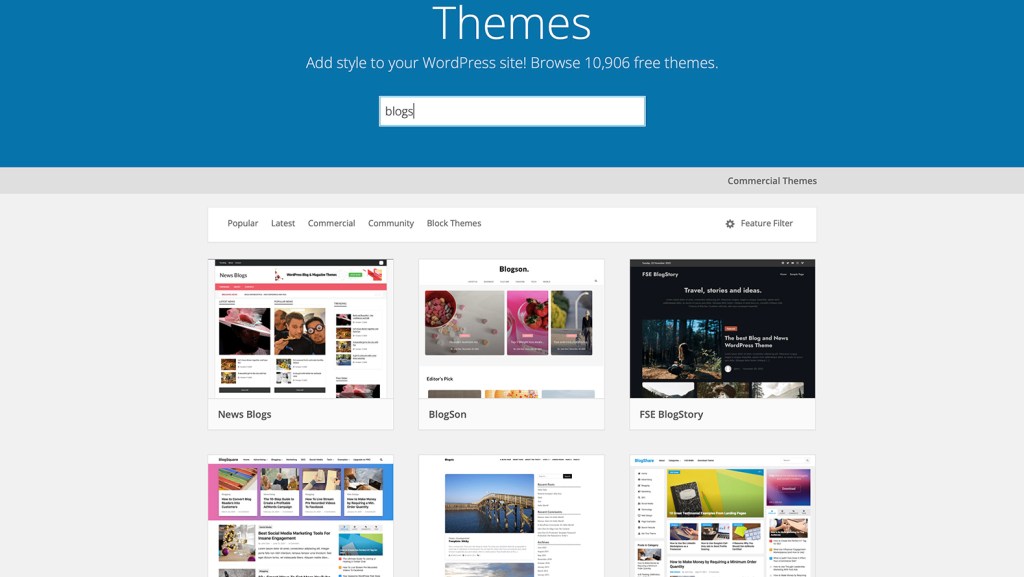
In the world of WordPress, blogs are one of the fundamental website types frequently created by individuals and businesses alike. Blogs provide a platform for expressing personal viewpoints, sharing opinions on relevant subjects, and generating content-driven traffic that engages audiences.
Blogs offer a great way to communicate your work with a wider audience while building credibility and trust through regularly shared insights and thoughts. Additionally, WordPress's various themes and plugins allow bloggers to customize their blog according to their preferences or target audience, thereby offering them an easy-to-use platform with endless opportunities for users.
Moreover, blogs can generate sustained traffic as people share insightful content, making it ideal for clients who want to drive traffic organically without resorting to ads or paid search results. Overall, blogs remain one of the most efficient ways to build specialized audiences in any niche.
To create a successful blog using WordPress, start by identifying your niche or area of expertise. Choose an appropriate theme that provides essential functionality like professional layout options and responsive design. Develop content-rich posts supported by high-quality images and other multimedia assets. Finally, invest time in cultivating readership through strategic distribution on social media channels such as Twitter and Facebook.
Your portfolio may showcase your skills, but a WordPress portfolio showcases your skills with style.
Portfolios
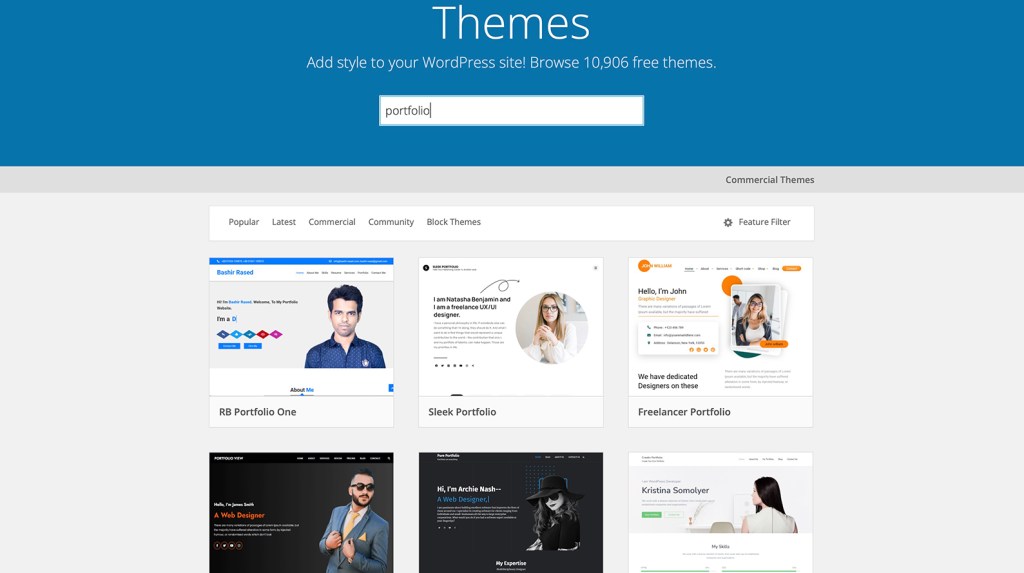
WordPress is an efficient content management system that offers various website types such as portfolios. Portfolios are online collections of a person's or company's work and projects. It is a visually appealing way to showcase one's skills and professionalism.
- Portfolios in WordPress offer a wide range of customization options to create unique designs for each project.
- They can be easily updated with new additions, allowing clients and potential employers to see the latest work.
- The use of various multimedia elements, like images, videos, and audio clips can make portfolios stand out further.
For those in creative industries, portfolios are an important tool for showcasing their abilities. WordPress allows users to build high-quality online portfolios that can serve as a powerful marketing tool.
A survey conducted by W3Techs shows that WordPress powers over 42% of all websites on the internet making it the most popular CMS. Searching for a job? Put a little WordPress in your step with a sleek and professional online resume.
Resumes
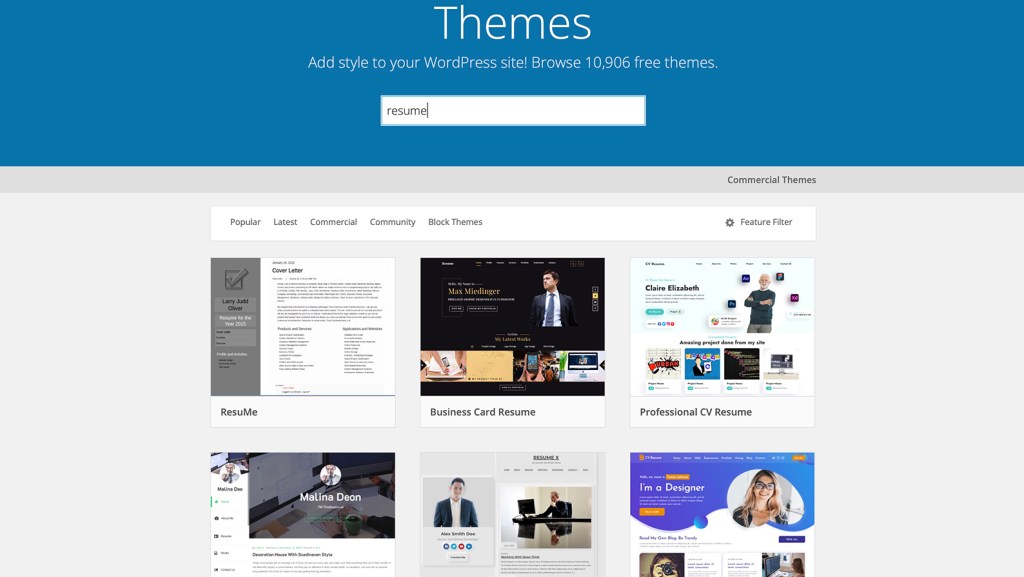
WordPress offers numerous themes for creating resumes that represent unique styles; however, users can add custom elements tailored to their specific needs by implementing plugins. These additions may include additional certifications, social media links, blog references or specific project details.
Furthermore, WordPress allows access to the platform to showcase portfolios and projects effectively. This customization is crucial in helping interested employers understand a candidate's potential and value while also framing it within a professional context.
When creating resumes on WordPress, consider including keywords relevant to your industry as they appear frequently in job ads & schemes utilized by recruiters and HR professionals. Doing so increases your chances of appearing higher in search rankings while applying for positions that match those key terms.
By utilizing WordPress optimizations specific to resume building – creating quality text copy, careful integration of media offerings like video presentations or image galleries – applicants can create a user-friendly resume that genuinely stands out from conventional nominees.
Why argue on Facebook when you can argue on a WordPress forum?
Forums
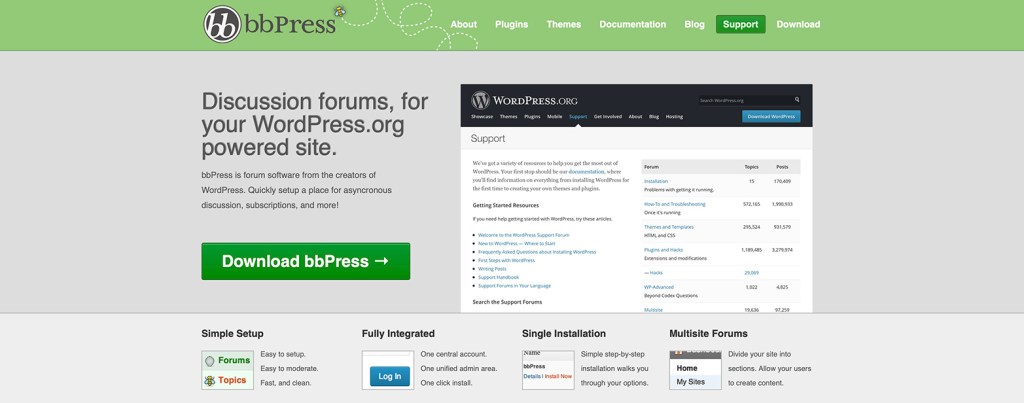
Online Discussion Boards for WordPress
A WordPress website can have a dedicated space created just for online discussion boards, known as “forums.” These forums allow users to ask and answer questions, offer feedback, and share commentary about topics related to the website or its products/services.
- Forums provide a platform for community building around shared topics of interest.
- They facilitate internet communication that is more permanent than social media platforms.
- Users can participate in specific sub-discussions within the forum thread.
- Forums allow rich text formatting and embedded multimedia content such as images and videos.
- Moderation tools are built-in to help administrators maintain a safe, cordial environment for exchanging ideas and experiences.
In addition to providing a platform for open conversation, forums offer targeted engagement with potential clients. Forum discussions allow businesses to build relationships with clients by interacting with them directly.
WordPress forums date back over a decade ago when developers added bbPress (bulletin board software) plugin support into WordPress core updates. This move helped make community membership sites easier to develop in WordPress. Today many websites use this built-in feature as one of several ways to maintain an essential open dialogue with its members.
Join the WordPress community and turn your website into a thriving social network with ease.
Social networks
WordPress allows users to create websites of various types namely, business sites, eCommerce stores, blogs, portfolios, resumes, forums, social networks and membership sites. Specifically talking about Social networks;
- WordPress provides robust functionalities to create social network-like websites for online communities.
- The platform offers several plugins that enable incorporating chat rooms and messaging features on the website.
- WordPress allows integrating features like user profile customization and member directories.
Notably, WordPress's extensive theme and plugin ecosystem ensures website owners can add new features anytime with ease.
Pro Tip: Use BuddyPress plugin for adding a social networking feature to your WP website.
Join the club with WordPress – create membership sites with ease.
Membership sites
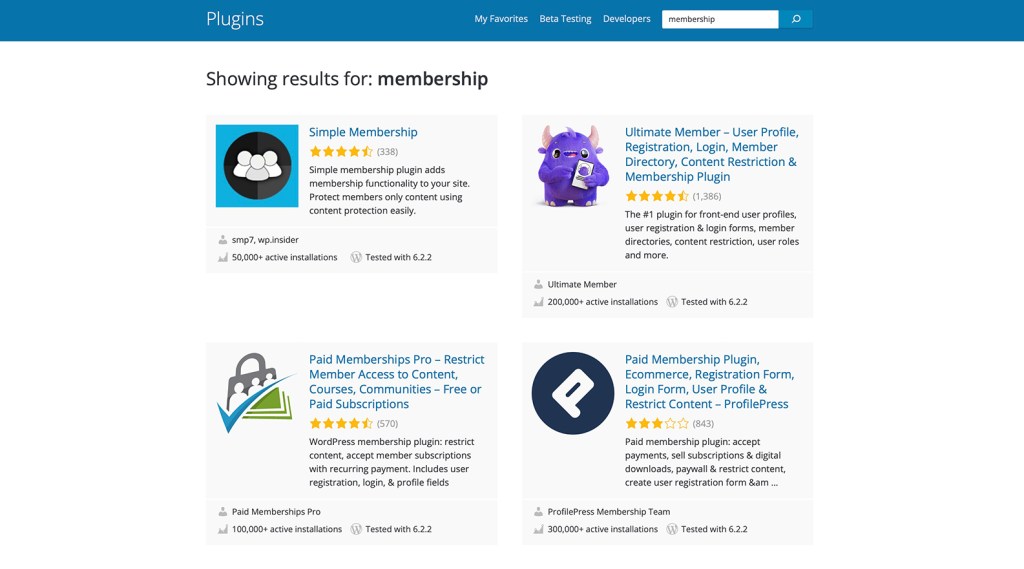
WordPress for ‘membership sites' provides an ideal platform for building community-based subscription or membership websites. WordPress offers a flexible range of options that caters to business requirements such as custom registration forms, user roles, and permissions.
- Membership sites can be easily created by installing membership plugins on WordPress.
- Various membership website models help in creating content-based or restricted-access-based memberships unique to the business needs.
- The ability to integrate additional functionalities such as payment gateways, online courses and webinars make WordPress a go-to platform for building successful membership businesses.
Notably, several leading membership plugins are available exclusively on WordPress that supports essential features that optimization of content delivery via easy member management resources.
The history of ‘membership sites' may not be extensive; however, the increased use of e-commerce solutions and digital marketing techniques spawned various membership website concepts adaptable across niches.
Choose Wisely: The difference between WordPress.org and WordPress.com is like owning a car or renting a car for your website.
Difference between WordPress.org and WordPress.com
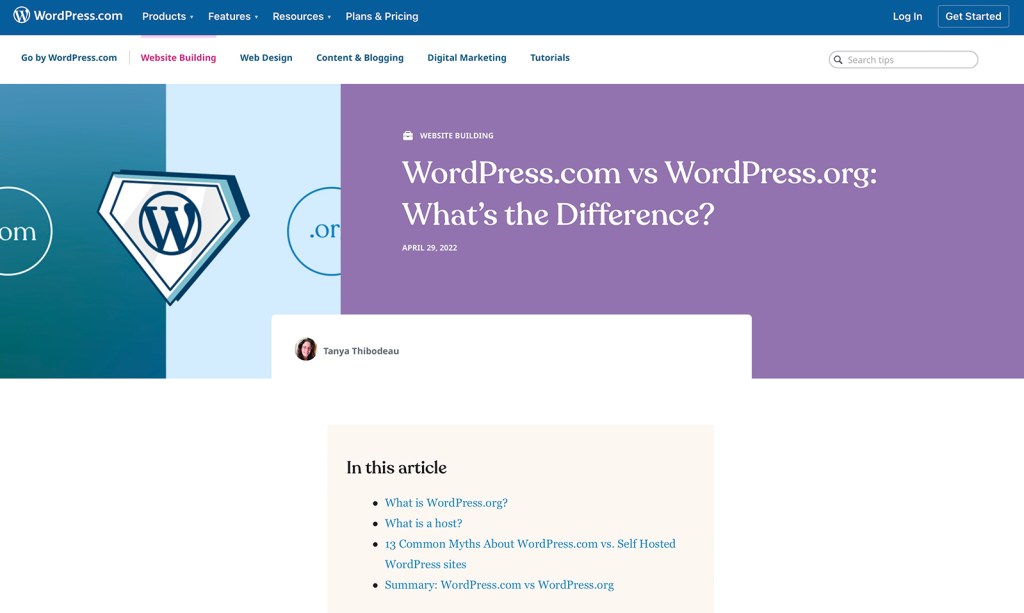
As someone who's new to building a website, it can be confusing to navigate through all the website builder options out there. In my research, I came across two platforms with similar names: WordPress.org and WordPress.com. In this part of the guide, I'd like to break down the difference between the two and help you figure out which one is best for you.
First, let's analyze WordPress.org, which is a self-hosted platform that gives you full control over your website. On the other hand, WordPress.com is a paid service that offers limited flexibility. By the end of the section, you'll understand why self-hosted WP is the way to go when it comes to owning your website.
WordPress.org
As an open-source platform with a robust community of contributors constantly adding new themes and plugins, WordPress.org offers nearly limitless options for customizing your site to suit your needs. Whether it's a simple blog or an e-commerce storefront, WordPress.org provides the foundation for any type of website you can imagine. Additionally, setting up a self-hosted WP site is easy thanks to one-click installs available through popular web hosts like BlueHost and SiteGround.
For those looking to build a professional online presence while maintaining complete ownership of their content and data, WordPress.org (self-hosted WP) is the way to go. To get started successfully using WordPress.org (self-hosted WP), make sure you choose a reliable hosting provider with robust security measures in place. Additionally, keep your website up-to-date with regular updates and backups to avoid any potential issues down the road.
WordPress.com may be paid, but it doesn't pay off when compared to the self-hosted version.
WordPress.com
A popular paid WP service is available on WordPress.com. It offers easy installation and a user-friendly interface for website creation. However, it has limited functionality in comparison to self-hosted WP. Users have restricted access to customizable themes and plugins and cannot use Google Analytics or advertising services. The service is suitable for bloggers or small businesses with basic requirements.
Pro Tip: Consider self-hosted WP over WordPress.com for customizable website design and extensions. Unleash your inner control freak with self-hosted WP and truly own your website.
Why self-hosted WP is best for owning your website
WordPress.org or self-hosted WordPress is the best option for owning your website. Self-hosted WP provides complete control over your website, including the ability to add custom themes and plugins. Additionally, self-hosted WordPress websites are more scalable and have better performance as compared to WordPress.com. It also offers better SEO prospects as you can optimize the website according to search engines. Moreover, with self-hosted WP, you own your domain and server space giving you ultimate control over what happens with your site.
WordPress: the underdog that rose to power, thanks to its community of contributors and supporters.
History of WordPress
As I explore the fascinating world of WordPress, I can't help but delve into its rich history to better understand its roots. The origins of WordPress date back to 2003 when co-founders Matt Mullenweg and Mike Little sought to create an innovative and user-friendly platform for bloggers. Since then, WordPress has evolved into the wildly popular open-source software that powers over 40% of the internet.
It owes much of its success to the thousands of contributors and the vibrant community behind WordPress. In this section, I'll be taking a deep dive into the history of WordPress, exploring its origins, its evolution into open-source software, and the passionate people behind it all.
Origins of WordPress
WordPress's initial roots and beginnings date back to 2003 when it began as a fork of b2/cafelog by Matt Mullenweg and Mike Little. At its outset, the innovative platform wasn't yet identified as a CMS but was more of a blogging platform. Because the predecessor (b2/cafelog) was no longer regularly maintained or updated, Mullenweg decided to develop his variant with frequent updates.
The initial fundamental idea behind WordPress was simple- make things easier for bloggers, with limited HTML knowledge, assisting them in publishing their content on the internet smoothly. It was first built in PHP and MySQL language but has undergone quite significant transformations since then.
An important aspect of the early WordPress community was open-source software making available all its coding architecture free to anyone who wants to utilize it. The majority of WordPress plugins remain provided under GPL (General Public License), a widely popular open-source license that permits users to modify and share modified versions under the same conditions.
WordPress is now utilized across numerous countries worldwide by millions of customers, including small businesses to large companies operating websites on WordPress. With WordPress gaining around 60 million sites over time since years past, it has left nothing else confined its dominance over other platforms among CMSs.
A fact worth mentioning is how even White House.gov uses WordPress and not something like Drupal or Joomla for website building!
WordPress is like that friend who is always there for you, except it's open-source software and doesn't judge you for your bad decisions.
WordPress as open-source software
As an open-source software, WordPress has a community-driven development process that allows developers to create features and functionalities while providing continuous updates. This free-to-use platform allows for the creation of websites without any licensing fees or costs. Its source code is accessible to any user who wants to modify it and create custom plugins or themes. The open-source nature also provides transparency, which promotes collaboration between users by reporting bugs and sharing code snippets on a global scale.
WordPress as open-source software entails that its users can customize their website beyond design and content without needing advanced technical know-how. Users have the freedom to work from the ground level up and create custom websites tailored precisely to their needs, ranging from simple blogs to complex e-commerce sites.
Pro-Tip: As with any open-source software, it's essential always to stay up-to-date with updates in case of new security vulnerabilities.
Without the contributions of its community, WordPress would be like a website without content – empty and useless.
Contributors and community behind WordPress
The vibrant and collaborative community of WordPress contributors is the backbone of its success. Individuals with diverse skills and expertise, including developers, designers, translators, and users-help build WordPress. They submit patches, participate in online forums, attend WordCamps, contribute to documentation, review code changes-ensuring that WordPress remains up-to-date, secure, accessible and easy-to-use. Additionally, Automattic-the company behind WordPress-gives resources back to the community by sponsoring WordCamps worldwide.
WordPress owes its versatility and scalability to this passionate community of contributors. It's thanks to these active editors that vital updates are consistent throughout the program; new helpful tools continuously added to the vast array of extensions available for themes and plugins; security flaws are quickly highlighted and addressed rigorously for the safety of all users alike.
Automattic continues to utilize a series of user focused growth strategies for example continuing investments in live video chat functionalities between customers through greater support for virtual bloggers from all backgrounds-encouraging a more lively conversation among creators from around the globe.
WordPress: Making everyone a website owner, from individuals to major entities like the White House and The Rolling Stones.
Who uses WordPress
According to the Reference Data, it's fascinating to know who uses WordPress, and the answer is, we are surrounded by WordPress users, and you might not even know it. The users come from small businesses and individuals to well-established and major entities such as Microsoft, Adobe Blogs, and even Whitehouse.gov, which powers their official website. The versatility of WordPress has made it a preferred choice for a vast range of users, and this section will explore some of the categories of users, highlighting a few case studies of big names that run their websites on WordPress.
Individuals and small businesses
Small businesses and individuals are among the most common users of WordPress. They use this content management system for a variety of purposes like blogging, creating e-commerce sites, portfolios, social networks, and membership websites. WordPress is free and open-source software that allows individuals and small businesses to create powerful websites without spending too much money or time.
These entities benefit from using WordPress because it provides an easily accessible platform with a wide range of features that suit their needs. The most significant advantage is access to thousands of themes and plugins that can be used to customize the website appearance and functionality according to their taste with minimal coding. It also allows them to improve the visibility of their product or service worldwide.
Using WordPress also attracts customers as it helps build credibility in them on seeing a professional-looking microsite online. The easy navigation helps customers in making purchases from the comfort of their homes too avoiding hassle at physical locations. Thus one can easily increase revenue by targeting audiences beyond geographic limitations.
In addition, WordPress regularly provides security updates ensuring safe exchange of confidential details. Therefore small businesses & individuals have more time to focus on expansion opportunities without having to worry about such bugs harming online users' information causing losses for companies as well as tarnishing their image.
Even the White House, Microsoft, and Adobe can't resist the charm of WordPress.
Major entities using WP
White House
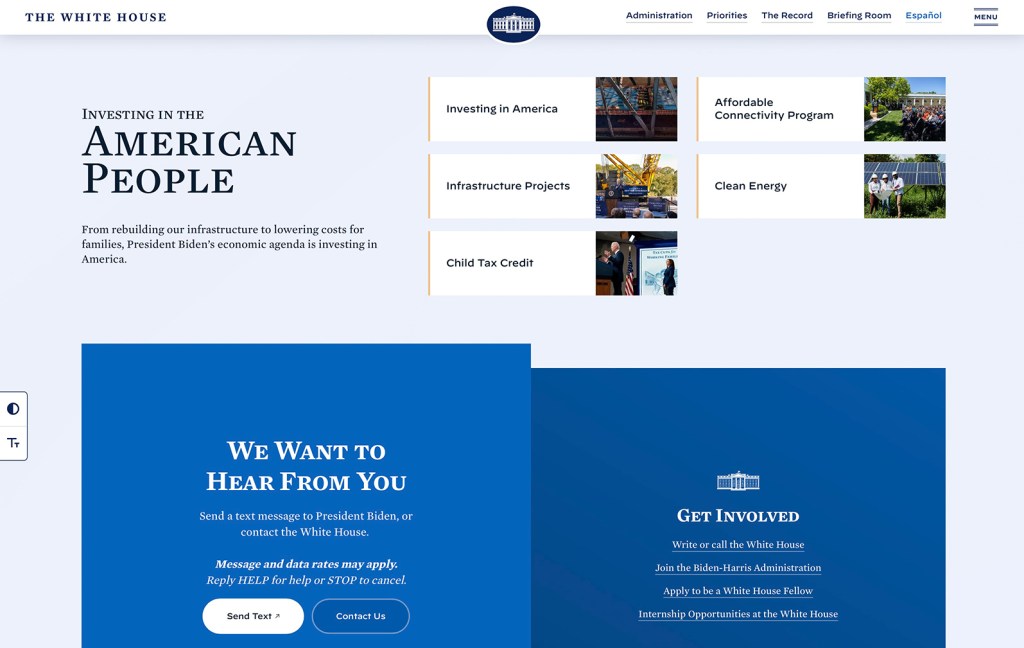
Microsoft
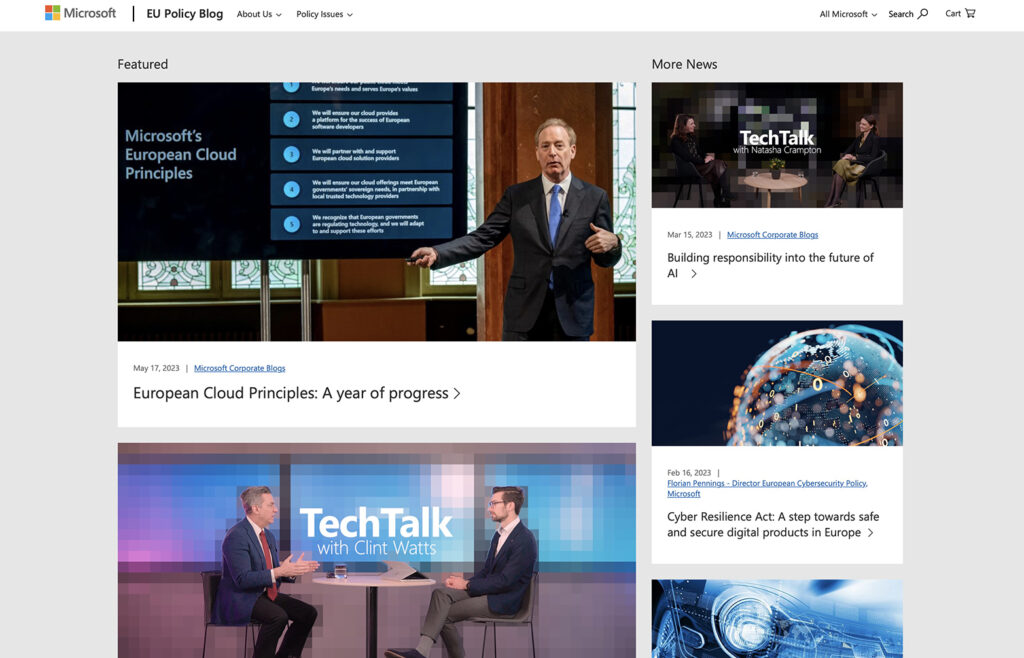
Adobe Blogs
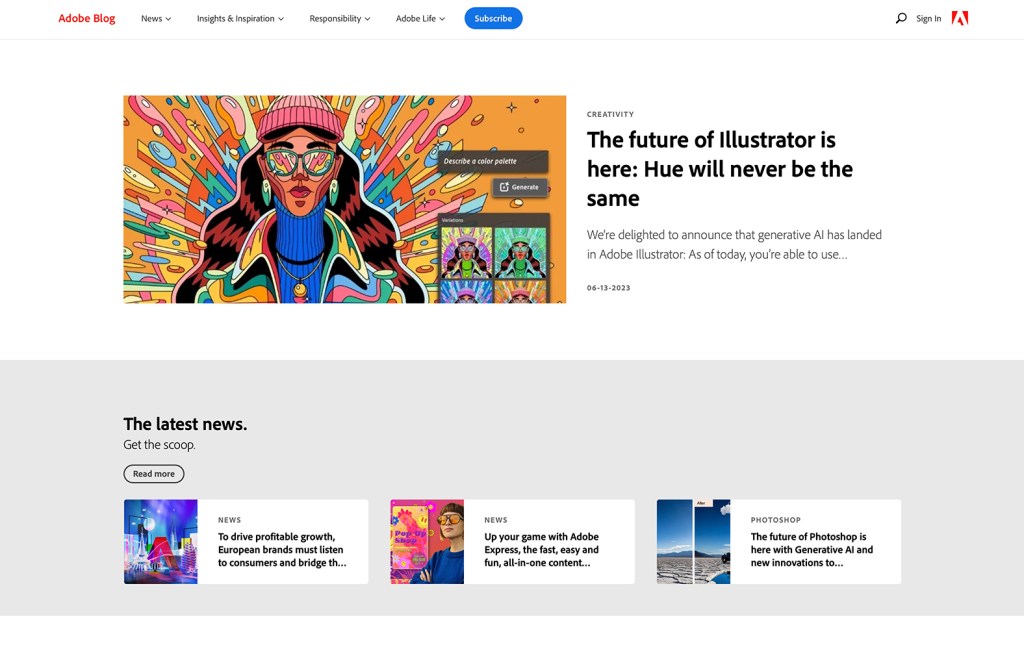
Large scale organizations that use WordPress as their chosen platform include the likes of Whitehouse.gov, Microsoft, and Adobe Blogs. Their choice to entrust their digital experiences to WordPress speaks to both its flexibility and scalability.
| Entity | Industry |
|---|---|
| Whitehouse.gov | Government |
| Microsoft EU | Technology |
| Adobe Blogs | Entertainment |
WordPress's ability to provide both a robust CMS, combined with a vast array of themes and plugins, makes it an attractive solution for organizations looking to streamline their web presence. Through WordPress's extensibility, businesses can create the custom digital experience that best suits their unique needs.
Several notable entities have chosen WordPress as a vital component of their digital presence due to its open-source nature, accessibility, ease of installation and wide range of options for customizing websites. One of the significant contributors behind this is the large community of developers continuously working towards improving and expanding upon the software for everyone's benefit.
Join the millions of users who use WordPress for its free software, easy installation, and endless options for customization through themes and plugins.
Why use WordPress
WordPress is a powerful and versatile platform that has taken the internet by storm. If you are new to the game, you might be wondering why WordPress is such a popular choice for creating websites. There are several reasons why WordPress stands out from the rest and it all boils down to its unique features. For starters, it is free and open-source software, making it accessible to everyone without any cost. Additionally, its extensibility allows you to mold your website to your liking, while the easy installation process gets your site up and running in no time. If that is not enough, the huge ecosystem of themes and plugins adds to the versatility of WordPress, providing a world of opportunities for customization.
Free and open-source software
WordPress is a type of software that is both free and open-source. This means that anyone can use and modify the code behind WordPress without paying any fees or obtaining permission. The term “open-source” refers to the fact that WordPress's source code is available for anyone to view, modify, and redistribute. In other words, users are free to customize and extend their website as they see fit.
The software's open source nature has contributed to a massive ecosystem of third-party plugins, themes, and other add-ons created by developers from around the world. This makes WordPress an extremely versatile platform with almost endless possibilities for customization.
Additionally, because WordPress is free and open-source, it is accessible to individuals and businesses of all sizes and budgets. Small businesses or individuals looking to start a blog or website can use the platform without investing in expensive software or licenses.
Furthermore, freelancers or web agencies can also build custom websites using WordPress's flexible framework at little cost. Ultimately, this makes it an affordable option for many people looking to create a professional website on their own terms.
In its early days in 2003-04 by Matt Mullenweg &, Mike Little as a fork of b2/cafelog, WordPress offered simple blogging functionality intended primarily for hobbyists. Since then, it has grown tremendously into one of the most significant content management systems on the web—It powers over 38% of all websites globally (source: W3Techs).
WordPress: the platform that grows with you – the more you need, the more you can add.
Extensibility of WordPress
WordPress' adaptability and expandability is what makes it a preferred choice for many users. Its extensibility allows users to add or modify features easily with plugins and themes.
With over 55,000 free and premium plugins available; it's effortless to enhance the functionality of WordPress websites. These plugins offer an unlimited scope of customization options, including social media integration, search engine optimization tools, security measures, and more.
Moreover, the platform's user-friendly interface makes it simple for even beginners to develop new functionalities in WordPress sites with minimal coding knowledge. Additionally, WordPress offers extensive documentation for developers interested in creating their custom solutions.
Notably, extensibility of WordPress has created opportunities for businesses to achieve unique functionalities based on their preferences rather than depending on existing templates or coding from scratch. There is no limit to what can be achieved using plugins and custom coding avenues while still saving time and resources.
WordPress' extensibility has been one of the core values that made it standout since its creation; this value has continued to make the platform better with time as developers continue to leverage its advantages.
Installing WordPress is easier than pretending to understand Inception.
Easy installation of WordPress
Setting up WordPress is a simple process, making it an ideal choice for beginners. Here's how you can easily install WordPress on your website.
- Choose a suitable web hosting provider and purchase a domain name.
- Log into your website's control panel and find the “WordPress” option.
- Select “Install” and follow the prompts to choose a username and password for your admin account.
- Select a website theme from the available options or use an external theme by uploading it through the WordPress dashboard.
- Select any necessary plugins that are required for your website's functionality and activation them.
- Your website is now ready for use! Begin creating content and customizing your website as desired.
It is worth noting that there are also numerous tutorials available online to guide you through the installation process if needed.
Pro Tip: Keep the admin password secure by using a strong combination of letters, numbers, and symbols. Also, regularly update both WordPress core files as well as installed themes and plugins to ensure optimal performance.
Recommended Hosting Providers
There are several hosting providers to choose from when creating a WordPress website. Some of the top-rated providers include:
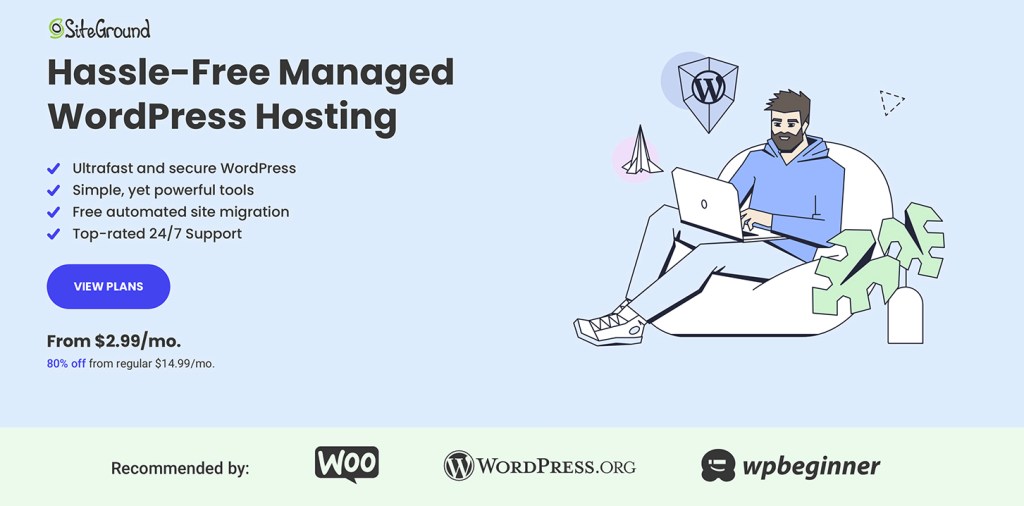
SiteGround is one of the best hosting company providers for WordPress users optimized for speed and security. SiteGround is all about speed and security when it comes to the fastest hosting provider even with their beginner plan at $2.99/month you still get the speed and load time.
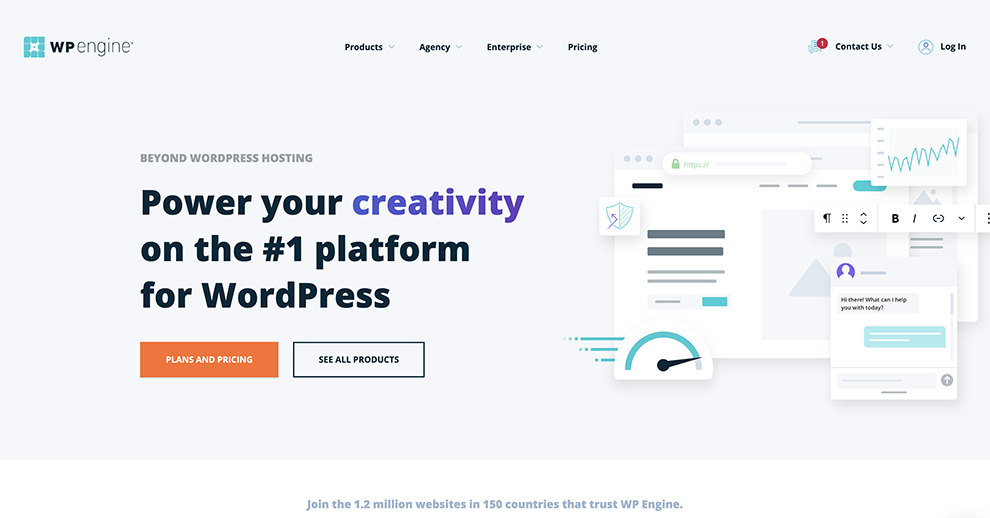
WP Engine is by many experts considered the best in WordPress Managed Hosting, they offer automatic security updates, daily backups, one-click restore points, automatic caching, top-tier security, FREE CDN & SSL Plus FREE Site Migration.
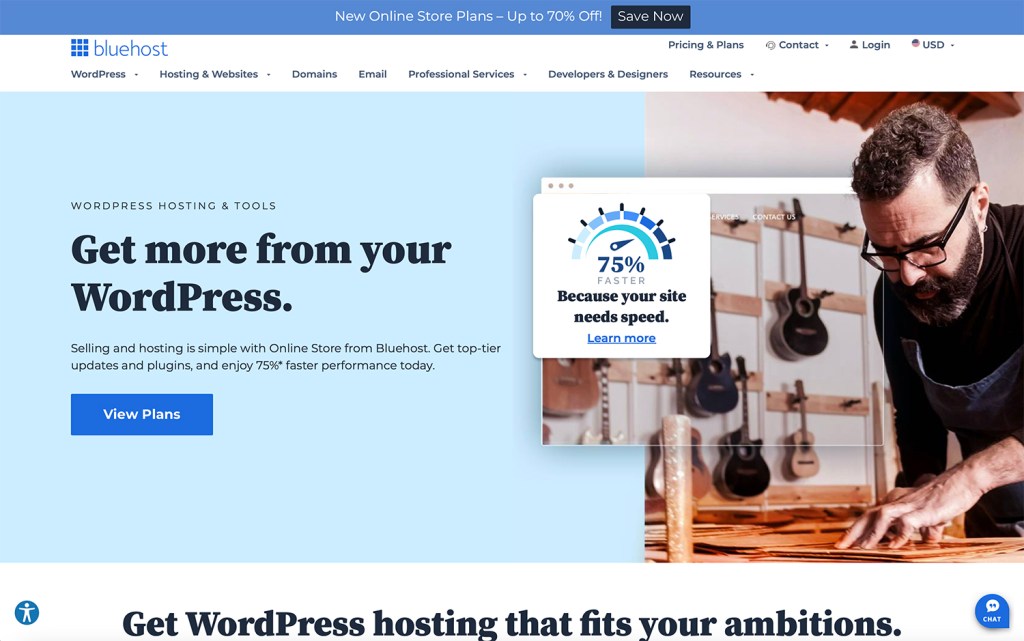
Bluehost is one of the best and fastest hosting companies when it comes to security and simplicity. They are an official “WordPress.org” recommended hosting provider since 2005. Bluehost is always working on making the hosting faster and more secure, since they are recommended by WordPress, they have to keep up with the technology and changes in the hosting space. With a great price starting at $2.95/month you can always upgrade to a more advanced plan once your website gets more traffic and visitors.
Huge ecosystem of themes and plugins available
WordPress provides an extensive and varied range of options through its immense library of themes and plugins, resulting in a vast ecosystem of web design possibilities.
- Themes allow site owners to change the appearance and layout of their website without needing any technical knowledge. These themes are customizable through an array of options provided by developers or users.
- Plugins provide functionality to WordPress sites, including SEO optimization, social media sharing, e-commerce capabilities, and more. There are over 58,000 plugins available on the official WordPress repository alone.
- The combination of themes and plugins unlock endless design possibilities that enable businesses to create unique websites with diverse functions.
With countless free themes and plugins creating new ones every day is blazing a trail for even more designing opportunities. WordPress has developed into a favored CMS for web developers across the globe due in part to its extensibility via tons of themes created by third-party developers for almost any industry imaginable (healthcare, business startups), while also allowing easy integration with multiple pre-built plugins providing critical site features.
A prominent example is the plugin “Yoast SEO“, which allows site owners to improve their website's search engine ranking using simple guides about keyword placement and readability parameters.
What Is WordPress? Explained For Beginners:
- WordPress is a content management system that allows users to easily create a website or blog without needing to know how to code.
- WordPress powers over 43.3% of all websites on the internet.
- With WordPress, users can create any type of website, from business sites and eCommerce stores to portfolios and social networks.
- WordPress is free and open-source software, meaning anyone can use or modify it for free.
- WordPress was created by Matt Mullenweg and Mike Little in 2003 as a standalone project and has since become the most popular solution for creating websites.
What is WordPress and who can use it?
WordPress is a free, open-source content management system that allows anyone to create their own website or blog without needing to know anything about programming. It's used by individuals, big businesses, and everyone in between. With WordPress, you can build all types of websites, including business websites, eCommerce stores, blogs, portfolios, resumes, forums, social networks, membership sites, and more.
What is GPLv2 and what does it mean for WordPress?
GPLv2 is the license under which WordPress is published, which means anyone can use or modify the WordPress software for free. This is one of the reasons why WordPress has such a huge community of developers and users who contribute to making the platform more powerful and flexible.
How extensible is WordPress and what are the benefits?
WordPress is highly extensible, which means you can modify your website easily using themes and plugins. Themes primarily change how your website looks, while plugins primarily change how it functions. Some plugins can be small, like a contact form, while others can be much larger, like an eCommerce store. With over 50,000 free WordPress plugins and 5,000 free WordPress themes, there are plenty of options to choose from and customize your website in any way you wish.
Is WordPress best for beginners?
Yes, WordPress is one of the best options for beginners because it's easy to install, user-friendly, and doesn't require any programming knowledge. Most web hosts offer tools that make the installation process very beginner-friendly, and with the huge ecosystem of themes and plugins available, you can create your website in any way you wish without needing any technical expertise.
How do I create a WordPress website?
To create a WordPress website, you'll need a WordPress hosting service and a domain name. Most web hosts offer a one-click installation process that lets you set up WordPress with just a few clicks. Once you've installed WordPress, you can customize your website using pre-made themes and plugins, or create your own using WordPress's easy-to-use interface.
How do I use WordPress effectively?
To use WordPress effectively, you need to understand how it works and how to customize it to suit your needs. You can get started by watching tutorials and reading resources online, such as WordPress's official documentation or tutorials by experienced users. It's also important to keep your WordPress installation and plugins up to date to avoid security vulnerabilities and ensure your website runs smoothly.
Key Takeaway:
- WordPress is a popular content management system that allows users to create and manage their own websites, without requiring extensive programming knowledge. It is a flexible platform that can be used to create a variety of different website types, including blogs, business websites, eCommerce stores, and more.
- One of the key benefits of using WordPress is its vast ecosystem of themes and plugins, which allow users to customize their websites and add new functionality without requiring extensive coding knowledge. Additionally, because WordPress is free and open-source software, it is accessible to users of all levels and backgrounds.
- When choosing between WordPress.org and WordPress.com, it is important to consider the level of control you want over your website. While WordPress.com offers some convenience features, including easy setup and hosting, WordPress.org is generally the better option for users who want full control over their website and its content.



